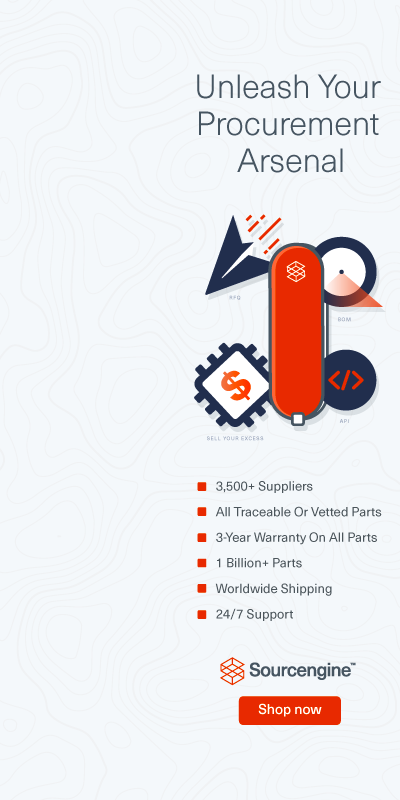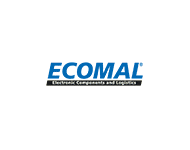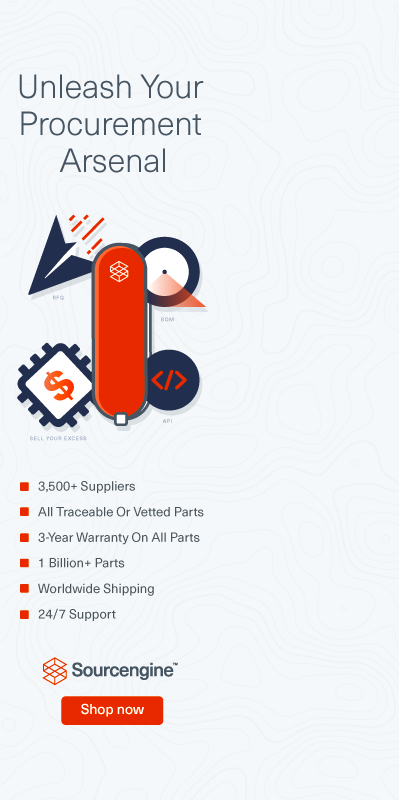
SMT & Inspection |
Recession in machinery and plant construction industry - Time to act
The recession has hit the machinery and plant construction industry with full force. Drops in orders of 30% to 50%, a liquidity squeeze among highly leveraged companies and international interdependence have produced the worst-ever crisis for the sector.
Managers now expect a longer and deeper crisis than they did just a few months ago. These are some of the findings of the Oliver Wyman study “Time to act – 6 theses on how to overcome the recession in the machinery and plant construction industry,” which is based on a survey of business managers in the German-speaking region. About 15% of the companies in the German machinery and plant construction industry are teetering on the edge of insolvency.
Compared to levels seen at the end of 2008, markets will shrink by about 20% to 30% over the medium term. Reduced hours or cutbacks in the number of temporary workers no longer suffice to overcome the crisis. The kinds of measures that should be high up on companies’ recession agendas range from capacity consolidation measures and site closures to cutbacks in administrative functions and fixed costs, outsourcing and savings in product cost. The sector is facing an unprecedented kill-or-cure therapy.
 The global recession has a tight grip on the machinery and plant construction industry. “Sentiment in the industry has deteriorated dramatically compared to a few months ago when we conducted a similar survey shortly after the start of the crisis,” says Lutz Jäde, a Partner and restructuring expert at Oliver Wyman. The surveyed managers’ statements can be summarized in six theses on the recession and ways to cope with it.
1. The full impact of the crisis will only transpire in the second half of 2009
Incoming orders in the machinery and plant construction industry took a plunge during the first few months of 2009. For example, Germany’s machinery and plant constructors recorded a drop in orders of nearly 50 percent year-to-year in May 2009, with some segments, such as commercial vehicle supplies, suffering drops of more than 80 percent. Due to the typical order cycles in this sector, however, this slump will impact sales and production volumes with a time lag. Given the average days sales outstanding of 70 to 80 days, the drop in volume will only fully impact corporate liquidity in the second half of 2009.
The global recession has a tight grip on the machinery and plant construction industry. “Sentiment in the industry has deteriorated dramatically compared to a few months ago when we conducted a similar survey shortly after the start of the crisis,” says Lutz Jäde, a Partner and restructuring expert at Oliver Wyman. The surveyed managers’ statements can be summarized in six theses on the recession and ways to cope with it.
1. The full impact of the crisis will only transpire in the second half of 2009
Incoming orders in the machinery and plant construction industry took a plunge during the first few months of 2009. For example, Germany’s machinery and plant constructors recorded a drop in orders of nearly 50 percent year-to-year in May 2009, with some segments, such as commercial vehicle supplies, suffering drops of more than 80 percent. Due to the typical order cycles in this sector, however, this slump will impact sales and production volumes with a time lag. Given the average days sales outstanding of 70 to 80 days, the drop in volume will only fully impact corporate liquidity in the second half of 2009.
 2. The crisis will last longer than expected
The auspices for the current recession are similar to those of the last crisis of the German machinery and plant construction industry at the start of the 1990s. Back then, several years of dynamic growth abruptly gave way to a severe downturn. Production volumes declined for two years and only recovered to previous levels after five years. If this experience is projected onto the current crisis, this would mean that machinery and plant construction markets will be shrinking until 2010. Accordingly, nearly 40 percent of the business managers surveyed by Oliver Wyman do not expect this recession to end before 2011 at the earliest.
3. Mid-term market volumes will be 20% to 30% lower than in 2008
The year 2008 was a record year for the industry, with strong growth in many segments. For example, output volumes of the German machinery and plant construction industry exceeded long-term trends by an average 30 percent. Following the hefty slump, nearly all market observers now project a slow recovery and a return to the historic trend path.
Under this scenario, market volumes will be about 20% to 30% lower than in 2008 over the medium term – meaning that machinery and plant construction companies must brace for a protracted lull after having been spoilt for several years. “Even beyond 2012, a recovery to levels seen in 2008 is unlikely for years to come,” says the consultant Jäde. “Companies must prepare for lower market volumes over the long term and adjust their structures and capacities accordingly.”
4. Immediate radical restructuring needed
Against this background, most companies in the machinery and plant construction industry are still adopting an all-too defensive approach, frequently coupled with short-term measures such as reduced hours and dismissals of temporary workers. Short-sighted measures, however, cannot solve long-term problems.
Additional structural changes like an adjustment of site structures and cutbacks in fixed costs by 20% to 30% are needed to continually generate positive cash flows despite lower sales volumes. The business managers surveyed in this study cite excessive overhead and overcapacities as their key challenges on the cost side. Highly leveraged companies, in particular, will struggle to survive without structural adjustments.
2. The crisis will last longer than expected
The auspices for the current recession are similar to those of the last crisis of the German machinery and plant construction industry at the start of the 1990s. Back then, several years of dynamic growth abruptly gave way to a severe downturn. Production volumes declined for two years and only recovered to previous levels after five years. If this experience is projected onto the current crisis, this would mean that machinery and plant construction markets will be shrinking until 2010. Accordingly, nearly 40 percent of the business managers surveyed by Oliver Wyman do not expect this recession to end before 2011 at the earliest.
3. Mid-term market volumes will be 20% to 30% lower than in 2008
The year 2008 was a record year for the industry, with strong growth in many segments. For example, output volumes of the German machinery and plant construction industry exceeded long-term trends by an average 30 percent. Following the hefty slump, nearly all market observers now project a slow recovery and a return to the historic trend path.
Under this scenario, market volumes will be about 20% to 30% lower than in 2008 over the medium term – meaning that machinery and plant construction companies must brace for a protracted lull after having been spoilt for several years. “Even beyond 2012, a recovery to levels seen in 2008 is unlikely for years to come,” says the consultant Jäde. “Companies must prepare for lower market volumes over the long term and adjust their structures and capacities accordingly.”
4. Immediate radical restructuring needed
Against this background, most companies in the machinery and plant construction industry are still adopting an all-too defensive approach, frequently coupled with short-term measures such as reduced hours and dismissals of temporary workers. Short-sighted measures, however, cannot solve long-term problems.
Additional structural changes like an adjustment of site structures and cutbacks in fixed costs by 20% to 30% are needed to continually generate positive cash flows despite lower sales volumes. The business managers surveyed in this study cite excessive overhead and overcapacities as their key challenges on the cost side. Highly leveraged companies, in particular, will struggle to survive without structural adjustments.
 5. Crisis-related opportunities for financially strong companies
Asked about the major opportunities emerging from the crisis, the surveyed managers cite the ability to implement radical changes within their organization, additional market share gains through anticyclical investments, market exits by competitors, a reduction of procurement costs and a favorable environment for M&A activities. Financially strong companies with good credit ratings are faced with a unique opportunity to bolster their strategic position through acquisitions as the financial and economic crisis has pushed down companies’ market value.
Valuation levels in the emerging markets have declined by nearly two-thirds, with numerous businesses currently looking for partners from western industrial nations. However, the developed markets also offer more opportunities for favorably priced acquisitions. Companies that have been put up for sale on account of their financing problems can in some cases be bought at half their normal value. Those who can invest in acquisitions as well as new products and business sites will enjoy considerable competitive advantages in the next recovery.
6. German companies are well-positioned
Most German machinery and plant construction companies are in a good starting position to weather the crisis. For example, most companies in the sector had an equity base of over 30 percent and an EBIT margin of more than 5 percent in 2008. In addition, many companies have improved their flexibility over the past few years and gained leading positions in international competition. As a result, many German companies could emerge as winners from the crisis – if they respond quickly and resolutely to the challenges facing them now. “Thanks to the strong equity base and profitability with which they started into the crisis, about 40 percent of the companies could emerge as winners from this crisis if they adopt a targeted recession agenda,” believes Jäde. “Conversely, around 15 percent of the companies will be struggling to survive on account of their high debts and unresolved profitability problems.”
Restructuring programs under a recession agenda
Individual crisis responses will depend on the respective company’s point of departure. As a first step, a recession agenda should comprise a realistic and conservative assessment of the likely depth and length of the recession in target markets and be complemented by a detailed cost and liquidity analysis. The findings from these assessments provide the basis for the selection and implementation of the appropriate restructuring levers, with short-term cost-cutting measures complemented by liquidity optimization measures, a sustained reduction of structural costs and efforts to set the company on course for future growth.
Recommended action - Five key crisis response measures
1. Work out own projections of expected business volumes 2009 to 2012 (“best case” and “worst case”).
2. Review stability of short-term financing under the worst-case scenario and, if necessary, initiate timely countermeasures.
3. Complement short-term cost-cutting measures by structural adjustments that will protect the company’s sustained profitability despite potentially lower business volumes.
4. Exploit the opportunities offered by the crisis, for example by addressing legacy issues in a targeted manner, by cleaning up portfolios and by actively seeking out potential takeover targets.
5. Systematically strengthen and exploit competitive leads over foreign rivals (in particular from China).
5. Crisis-related opportunities for financially strong companies
Asked about the major opportunities emerging from the crisis, the surveyed managers cite the ability to implement radical changes within their organization, additional market share gains through anticyclical investments, market exits by competitors, a reduction of procurement costs and a favorable environment for M&A activities. Financially strong companies with good credit ratings are faced with a unique opportunity to bolster their strategic position through acquisitions as the financial and economic crisis has pushed down companies’ market value.
Valuation levels in the emerging markets have declined by nearly two-thirds, with numerous businesses currently looking for partners from western industrial nations. However, the developed markets also offer more opportunities for favorably priced acquisitions. Companies that have been put up for sale on account of their financing problems can in some cases be bought at half their normal value. Those who can invest in acquisitions as well as new products and business sites will enjoy considerable competitive advantages in the next recovery.
6. German companies are well-positioned
Most German machinery and plant construction companies are in a good starting position to weather the crisis. For example, most companies in the sector had an equity base of over 30 percent and an EBIT margin of more than 5 percent in 2008. In addition, many companies have improved their flexibility over the past few years and gained leading positions in international competition. As a result, many German companies could emerge as winners from the crisis – if they respond quickly and resolutely to the challenges facing them now. “Thanks to the strong equity base and profitability with which they started into the crisis, about 40 percent of the companies could emerge as winners from this crisis if they adopt a targeted recession agenda,” believes Jäde. “Conversely, around 15 percent of the companies will be struggling to survive on account of their high debts and unresolved profitability problems.”
Restructuring programs under a recession agenda
Individual crisis responses will depend on the respective company’s point of departure. As a first step, a recession agenda should comprise a realistic and conservative assessment of the likely depth and length of the recession in target markets and be complemented by a detailed cost and liquidity analysis. The findings from these assessments provide the basis for the selection and implementation of the appropriate restructuring levers, with short-term cost-cutting measures complemented by liquidity optimization measures, a sustained reduction of structural costs and efforts to set the company on course for future growth.
Recommended action - Five key crisis response measures
1. Work out own projections of expected business volumes 2009 to 2012 (“best case” and “worst case”).
2. Review stability of short-term financing under the worst-case scenario and, if necessary, initiate timely countermeasures.
3. Complement short-term cost-cutting measures by structural adjustments that will protect the company’s sustained profitability despite potentially lower business volumes.
4. Exploit the opportunities offered by the crisis, for example by addressing legacy issues in a targeted manner, by cleaning up portfolios and by actively seeking out potential takeover targets.
5. Systematically strengthen and exploit competitive leads over foreign rivals (in particular from China).
 -----
Oliver Wyman study “Time to act – 6 theses on how to overcome the recession in the machinery and plant construction industry” The survey was conducted in March and April 2009 based on face-to-face interviews with 50 selected management board members and chief executives of German machinery and plant constructors. For the purpose of comparability, the interviews were backed up by a questionnaire. In addition, the study also drew on secondary research. The results were condensed into six recession theses.
This image is not part of this article.
-----
Oliver Wyman study “Time to act – 6 theses on how to overcome the recession in the machinery and plant construction industry” The survey was conducted in March and April 2009 based on face-to-face interviews with 50 selected management board members and chief executives of German machinery and plant constructors. For the purpose of comparability, the interviews were backed up by a questionnaire. In addition, the study also drew on secondary research. The results were condensed into six recession theses.
This image is not part of this article.
 The global recession has a tight grip on the machinery and plant construction industry. “Sentiment in the industry has deteriorated dramatically compared to a few months ago when we conducted a similar survey shortly after the start of the crisis,” says Lutz Jäde, a Partner and restructuring expert at Oliver Wyman. The surveyed managers’ statements can be summarized in six theses on the recession and ways to cope with it.
1. The full impact of the crisis will only transpire in the second half of 2009
Incoming orders in the machinery and plant construction industry took a plunge during the first few months of 2009. For example, Germany’s machinery and plant constructors recorded a drop in orders of nearly 50 percent year-to-year in May 2009, with some segments, such as commercial vehicle supplies, suffering drops of more than 80 percent. Due to the typical order cycles in this sector, however, this slump will impact sales and production volumes with a time lag. Given the average days sales outstanding of 70 to 80 days, the drop in volume will only fully impact corporate liquidity in the second half of 2009.
The global recession has a tight grip on the machinery and plant construction industry. “Sentiment in the industry has deteriorated dramatically compared to a few months ago when we conducted a similar survey shortly after the start of the crisis,” says Lutz Jäde, a Partner and restructuring expert at Oliver Wyman. The surveyed managers’ statements can be summarized in six theses on the recession and ways to cope with it.
1. The full impact of the crisis will only transpire in the second half of 2009
Incoming orders in the machinery and plant construction industry took a plunge during the first few months of 2009. For example, Germany’s machinery and plant constructors recorded a drop in orders of nearly 50 percent year-to-year in May 2009, with some segments, such as commercial vehicle supplies, suffering drops of more than 80 percent. Due to the typical order cycles in this sector, however, this slump will impact sales and production volumes with a time lag. Given the average days sales outstanding of 70 to 80 days, the drop in volume will only fully impact corporate liquidity in the second half of 2009.
 2. The crisis will last longer than expected
The auspices for the current recession are similar to those of the last crisis of the German machinery and plant construction industry at the start of the 1990s. Back then, several years of dynamic growth abruptly gave way to a severe downturn. Production volumes declined for two years and only recovered to previous levels after five years. If this experience is projected onto the current crisis, this would mean that machinery and plant construction markets will be shrinking until 2010. Accordingly, nearly 40 percent of the business managers surveyed by Oliver Wyman do not expect this recession to end before 2011 at the earliest.
3. Mid-term market volumes will be 20% to 30% lower than in 2008
The year 2008 was a record year for the industry, with strong growth in many segments. For example, output volumes of the German machinery and plant construction industry exceeded long-term trends by an average 30 percent. Following the hefty slump, nearly all market observers now project a slow recovery and a return to the historic trend path.
Under this scenario, market volumes will be about 20% to 30% lower than in 2008 over the medium term – meaning that machinery and plant construction companies must brace for a protracted lull after having been spoilt for several years. “Even beyond 2012, a recovery to levels seen in 2008 is unlikely for years to come,” says the consultant Jäde. “Companies must prepare for lower market volumes over the long term and adjust their structures and capacities accordingly.”
4. Immediate radical restructuring needed
Against this background, most companies in the machinery and plant construction industry are still adopting an all-too defensive approach, frequently coupled with short-term measures such as reduced hours and dismissals of temporary workers. Short-sighted measures, however, cannot solve long-term problems.
Additional structural changes like an adjustment of site structures and cutbacks in fixed costs by 20% to 30% are needed to continually generate positive cash flows despite lower sales volumes. The business managers surveyed in this study cite excessive overhead and overcapacities as their key challenges on the cost side. Highly leveraged companies, in particular, will struggle to survive without structural adjustments.
2. The crisis will last longer than expected
The auspices for the current recession are similar to those of the last crisis of the German machinery and plant construction industry at the start of the 1990s. Back then, several years of dynamic growth abruptly gave way to a severe downturn. Production volumes declined for two years and only recovered to previous levels after five years. If this experience is projected onto the current crisis, this would mean that machinery and plant construction markets will be shrinking until 2010. Accordingly, nearly 40 percent of the business managers surveyed by Oliver Wyman do not expect this recession to end before 2011 at the earliest.
3. Mid-term market volumes will be 20% to 30% lower than in 2008
The year 2008 was a record year for the industry, with strong growth in many segments. For example, output volumes of the German machinery and plant construction industry exceeded long-term trends by an average 30 percent. Following the hefty slump, nearly all market observers now project a slow recovery and a return to the historic trend path.
Under this scenario, market volumes will be about 20% to 30% lower than in 2008 over the medium term – meaning that machinery and plant construction companies must brace for a protracted lull after having been spoilt for several years. “Even beyond 2012, a recovery to levels seen in 2008 is unlikely for years to come,” says the consultant Jäde. “Companies must prepare for lower market volumes over the long term and adjust their structures and capacities accordingly.”
4. Immediate radical restructuring needed
Against this background, most companies in the machinery and plant construction industry are still adopting an all-too defensive approach, frequently coupled with short-term measures such as reduced hours and dismissals of temporary workers. Short-sighted measures, however, cannot solve long-term problems.
Additional structural changes like an adjustment of site structures and cutbacks in fixed costs by 20% to 30% are needed to continually generate positive cash flows despite lower sales volumes. The business managers surveyed in this study cite excessive overhead and overcapacities as their key challenges on the cost side. Highly leveraged companies, in particular, will struggle to survive without structural adjustments.
 5. Crisis-related opportunities for financially strong companies
Asked about the major opportunities emerging from the crisis, the surveyed managers cite the ability to implement radical changes within their organization, additional market share gains through anticyclical investments, market exits by competitors, a reduction of procurement costs and a favorable environment for M&A activities. Financially strong companies with good credit ratings are faced with a unique opportunity to bolster their strategic position through acquisitions as the financial and economic crisis has pushed down companies’ market value.
Valuation levels in the emerging markets have declined by nearly two-thirds, with numerous businesses currently looking for partners from western industrial nations. However, the developed markets also offer more opportunities for favorably priced acquisitions. Companies that have been put up for sale on account of their financing problems can in some cases be bought at half their normal value. Those who can invest in acquisitions as well as new products and business sites will enjoy considerable competitive advantages in the next recovery.
6. German companies are well-positioned
Most German machinery and plant construction companies are in a good starting position to weather the crisis. For example, most companies in the sector had an equity base of over 30 percent and an EBIT margin of more than 5 percent in 2008. In addition, many companies have improved their flexibility over the past few years and gained leading positions in international competition. As a result, many German companies could emerge as winners from the crisis – if they respond quickly and resolutely to the challenges facing them now. “Thanks to the strong equity base and profitability with which they started into the crisis, about 40 percent of the companies could emerge as winners from this crisis if they adopt a targeted recession agenda,” believes Jäde. “Conversely, around 15 percent of the companies will be struggling to survive on account of their high debts and unresolved profitability problems.”
Restructuring programs under a recession agenda
Individual crisis responses will depend on the respective company’s point of departure. As a first step, a recession agenda should comprise a realistic and conservative assessment of the likely depth and length of the recession in target markets and be complemented by a detailed cost and liquidity analysis. The findings from these assessments provide the basis for the selection and implementation of the appropriate restructuring levers, with short-term cost-cutting measures complemented by liquidity optimization measures, a sustained reduction of structural costs and efforts to set the company on course for future growth.
Recommended action - Five key crisis response measures
1. Work out own projections of expected business volumes 2009 to 2012 (“best case” and “worst case”).
2. Review stability of short-term financing under the worst-case scenario and, if necessary, initiate timely countermeasures.
3. Complement short-term cost-cutting measures by structural adjustments that will protect the company’s sustained profitability despite potentially lower business volumes.
4. Exploit the opportunities offered by the crisis, for example by addressing legacy issues in a targeted manner, by cleaning up portfolios and by actively seeking out potential takeover targets.
5. Systematically strengthen and exploit competitive leads over foreign rivals (in particular from China).
5. Crisis-related opportunities for financially strong companies
Asked about the major opportunities emerging from the crisis, the surveyed managers cite the ability to implement radical changes within their organization, additional market share gains through anticyclical investments, market exits by competitors, a reduction of procurement costs and a favorable environment for M&A activities. Financially strong companies with good credit ratings are faced with a unique opportunity to bolster their strategic position through acquisitions as the financial and economic crisis has pushed down companies’ market value.
Valuation levels in the emerging markets have declined by nearly two-thirds, with numerous businesses currently looking for partners from western industrial nations. However, the developed markets also offer more opportunities for favorably priced acquisitions. Companies that have been put up for sale on account of their financing problems can in some cases be bought at half their normal value. Those who can invest in acquisitions as well as new products and business sites will enjoy considerable competitive advantages in the next recovery.
6. German companies are well-positioned
Most German machinery and plant construction companies are in a good starting position to weather the crisis. For example, most companies in the sector had an equity base of over 30 percent and an EBIT margin of more than 5 percent in 2008. In addition, many companies have improved their flexibility over the past few years and gained leading positions in international competition. As a result, many German companies could emerge as winners from the crisis – if they respond quickly and resolutely to the challenges facing them now. “Thanks to the strong equity base and profitability with which they started into the crisis, about 40 percent of the companies could emerge as winners from this crisis if they adopt a targeted recession agenda,” believes Jäde. “Conversely, around 15 percent of the companies will be struggling to survive on account of their high debts and unresolved profitability problems.”
Restructuring programs under a recession agenda
Individual crisis responses will depend on the respective company’s point of departure. As a first step, a recession agenda should comprise a realistic and conservative assessment of the likely depth and length of the recession in target markets and be complemented by a detailed cost and liquidity analysis. The findings from these assessments provide the basis for the selection and implementation of the appropriate restructuring levers, with short-term cost-cutting measures complemented by liquidity optimization measures, a sustained reduction of structural costs and efforts to set the company on course for future growth.
Recommended action - Five key crisis response measures
1. Work out own projections of expected business volumes 2009 to 2012 (“best case” and “worst case”).
2. Review stability of short-term financing under the worst-case scenario and, if necessary, initiate timely countermeasures.
3. Complement short-term cost-cutting measures by structural adjustments that will protect the company’s sustained profitability despite potentially lower business volumes.
4. Exploit the opportunities offered by the crisis, for example by addressing legacy issues in a targeted manner, by cleaning up portfolios and by actively seeking out potential takeover targets.
5. Systematically strengthen and exploit competitive leads over foreign rivals (in particular from China).
 -----
Oliver Wyman study “Time to act – 6 theses on how to overcome the recession in the machinery and plant construction industry” The survey was conducted in March and April 2009 based on face-to-face interviews with 50 selected management board members and chief executives of German machinery and plant constructors. For the purpose of comparability, the interviews were backed up by a questionnaire. In addition, the study also drew on secondary research. The results were condensed into six recession theses.
This image is not part of this article.
-----
Oliver Wyman study “Time to act – 6 theses on how to overcome the recession in the machinery and plant construction industry” The survey was conducted in March and April 2009 based on face-to-face interviews with 50 selected management board members and chief executives of German machinery and plant constructors. For the purpose of comparability, the interviews were backed up by a questionnaire. In addition, the study also drew on secondary research. The results were condensed into six recession theses.
This image is not part of this article.





